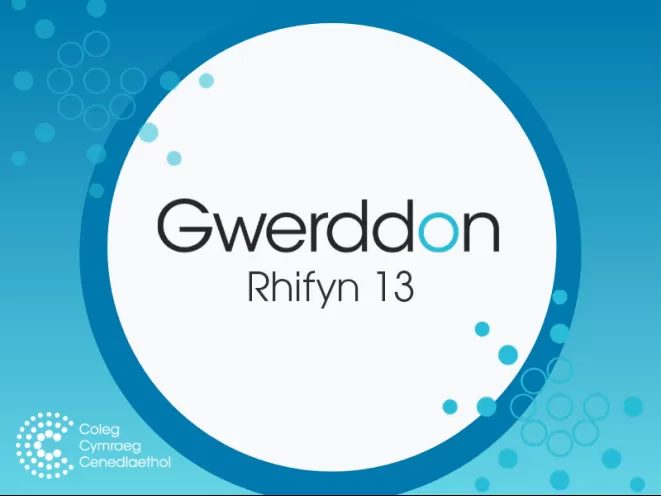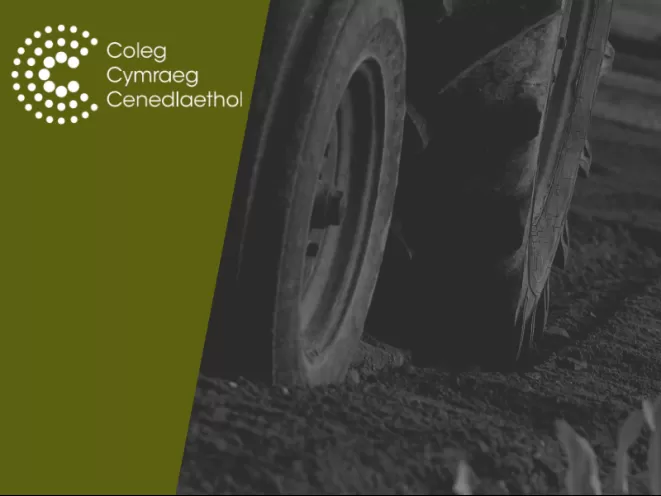The Cluster spacecraft are used in order to investigate the solar wind, and because there are four spacecraft, it allows a measurement of the 3-D structure of the solar wind. Since turbulence is a 3-D phenomenon, Cluster is ideal for investigating turbulence. These observations show that the turbulence at proton gyration scales are dominated by Kinetic Alfvén waves as well as magnetic vortices. This research strengthens the hypothesis that Kinetic Alfvén waves are present in the solar wind and suggests for the first time that waves and magnetic vortices can coexist in the solar wind.
Turbulence in the solar wind
Are small peptides a nutrition source for plant and micro-organisms in the maritime Antarctic?
Nitrogen (N) is the most important element that controls plant growth. During the past twenty years, our understanding of which N species are important for plant growth has developed significantly but it is still thought that large nitrogenous molecules need to be broken down into their constituent amino acids to be available for plant and microbial growth. This paper builds on our understanding of this process and suggests that small peptides are equally important for microbial nutrition and that soil microbes outcompete plants for low molecular weight N compounds in maritime Antarctic soil.
Penwythnos Cyfarwyddo Theatr 2013 a 2014
Cyfweliadau gyda chyfarwyddwyr theatr blaenllaw a ffilmiwyd yn ystod Penwythnos Cyfarwyddo Theatr 2013 a 2014. Dyma brosiect cydweithredol a drefnir gan Brifysgol De Cymru.
(Historical and contemporary use of mynd i (go to) in Welsh: A study of grammaticalization as language change)
The use of verbs of motion to express futurity is recognized cross-linguistically as an example of grammaticalization, whereby a construction changes over time to be less concrete and more grammatical. A number of historical and contemporary Welsh corpora are qualitatively analysed in order to identify the diachronic development of ‘mynd i’ (going to) to express the future in Welsh. Some examples of the grammaticalized form of ‘mynd i’ are found in texts from the sixteenth and seventeenth century, indicating that the grammaticalization process started at least 500 years ago, but the construction does not become prominent until the twentieth century. It is argued that this is an example of the influence of English grammar, where ‘BE + going to’ has also historically gone through a process of grammaticalization, and that an increase in bilingualism in Wales in the twentieth century has been a factor in normalising the grammaticalized form. A discussion is provided of how the situation of this Welsh construction informs our knowledge of the effect of language contact on grammaticalization.
A pilot study of the speech errors of candidates of the WJEC Use of Welsh examinations
This paper is based on a pilot study aimed at defining and identifying the most common speech errors made by candidates for the WJEC’s Use of Welsh examinations at Intermediate and Advanced Levels in the CQFW, during the oral tests associated with these examinations. The paper explores how the speech errors observed can be classified, and if it is possible to use the resulting data to discover whether they can be regarded as linguistic variables in their own right and used to explore their relationship with non-linguistic factors such as context, age, upbringing and social background as part of a comprehensive study based on a much larger sample of informants.
Linguistic variation amongst Welsh speakers in Treorchy at the end of the seventies
This paper attempts to account for the linguistic variation amongst the Welsh speakers of the Treorci area of the Rhondda Fawr valley at the end of the 1970s. This is done by using and adapting sociolinguistic techniques developed by pioneers in the field, in particular William Labov. The paper begins with a classical phonological description of the Welsh used by the native speakers recorded. It then goes on to explore the relationship between the ‘free’ variation recorded in informants’ speech, through the concept of the linguistic variable and the social network. A detailed analysis of the data is given – both quantitative and qualitative – which adds to our knowledge of Welsh dialects, and also helps us to understand how social factors influence the choice of language by individual speakers.
Worm Research Project
Nod y prosiect hwn oedd deall gwasgariad y parasit llyngyr y rwmen yng Nghymru. Gweithiodd gwyddonwyr o IBERS, Prifysgol Aberystwyth, gydag aelodau CFfI ar draws Cymru i ddarganfod ym mha ffermydd yr oedd llyngyr y rwmen yn bresennol.
Teachers as learners – perspectives on second language practitioners’ confidence in supporting Welsh Language ...
Welsh Language Development in the Foundation Phase in Wales is an area of some significance and thus this article focuses on the perspectives of practitioners who speak Welsh as a second language and who teach Welsh as a second language in the Foundation Phase. The depth of challenge of teaching a language in which they are not entirely confident is evaluated, considering some of the implications of their perspectives. The confidence of the practitioners is considered in the context of Welsh policy and curriculum, which suggests that this phase and area of education may be rather invisible in terms of the development of Welsh, but that it impacts a significant number of Foundation Phase pupils in Wales. It is suggested that this element of the Foundation Phase requires consideration and attention in the very near future.
Bilingual Juries: A Celtic Dilemma?
Although the criminal justice system is not a devolved matter, elements of criminal law administration, which is the process of implementing the law, have developed distinctive Welsh structures and aspects. This can be seen in the context of Assembly Government crime prevention policies, and in particular the issue of youth crime, for example. In a sense, the identity of Wales within the constitution has led to the creation of certain distinctively Welsh processes and policies in terms of criminal justice administration. This paper gives consideration to a specific issue relating to criminal justice and its relationship to identity, within two jurisdictions. The question under discussion is, should there be a right to bilingual juries in certain criminal cases in Wales and Ireland. I shall analyse the relationship between jury service as an obligation and privilege of citizenship, and the competence of Irish and Welsh speakers as a linguistic group for jury service. The analysis will consider also the relationship between the concept of jury service as a privilege of citizenship and the rights and interests of individual speakers within the criminal justice system. It can be seen that this is a matter that demands a multifaceted evaluation from a variety of perspectives. This paper deals also with the objection to bilingual juries, and considers how granting bilingual juries can be consistent with the principle of random jury selection (the basis of the main objection to bilingual juries in Wales and Ireland), thus securing a representative, competent, fair and impartial tribunal.
RAS200 in Wales
RAS200 project resources (communicating science through the medium of art) RAS200 Sky and Earth is an ambitious plan to celebrate the bicentenary of the Royal Astronomical Society. They aim to embed and provide a legacy of astronomy and geophysics in the wider society. RAS200 in Wales aims to raise awareness of astronomy and geophysics through the arts activities of the Urdd and National Eisteddfod. This collection provides resources developed as part of the activity. There are presentations of astronomy and geophysics through culture, which provide an insight into the science through creative works. To learn more about the project, read Professor Eleri Pryse's introduction to RAS200 in Wales.
'Towards the light': Parents’ reasons for choosing Welsh education for their children in Cwm Rhymni
Welsh-medium education has long been seen as an effective language planning tool in order to transmit the Welsh language in Wales. According to the 2001 Census, there has been a substantial increase in the numbers of Welsh speakers 3–15 years old, especially in south–east Wales, since the 1991 Census. The aim of this paper is to elaborate upon this quantitative data by providing qualitative data with regard to the main reasons and incentives for parents to choose this educational option for their children. The study location is Cwm Rhymni, Caerffili county. A combination of quantitative questionnaires and qualitative in-depth interviews were administered amongst parents from the meithrin, primary and secondary school sectors in Cwm Rhymni. The reasons why parents choose this educational system for their children were cultural, educational, economic and personal. However, it is pertinent to note from the outset, that the parents chose Welsh-medium education for their children in this area for mainly cultural reasons, rather than economic reasons which featured heavily in past studies such as research by Williams et al. (1978) on bilingual education in the Rhondda. This study is the first in a larger corpus of work and one that hopes to address the existing lacunae in the Sociology of Language in Wales, especially as there is a lack of Sociology of Language studies through the medium of Welsh in Wales.
The importance of chemical fingerprinting for Icelandic volcanic ash: The Grákolla tephra, Torfajökull volcano
Tephrochronology studies in the North Atlantic typically focus on large scale silicic volcanic eruptions such as the Askja 1875, Hekla 1104 and Öræfajokull 1362. However, smaller-scale Icelandic eruptions are becoming more important as regional time marker horizons and have the potential for application across widerdistances e.g. the Eyjafjallajökull eruption of 2010. The Grákolla tephra is one such layer, sourced within the Torfajökull volcanic system. On the basis of major element chemistry, the tephra layer exhibits an identical geochemical fingerprint to the Landnám tephra, which is also sourced from the Torfajökull system. However, distinct differences are discernible on the basis of trace element chemistry, although some data overlap remains. This realisation highlights the potential for introducing significant age discrepancies to a dating framework based on recent silicic Torfajökull tephra deposits in the Faroe Islands if tephra identification is based solely on major element chemistry. Six hundred years separate the eruptions, which although a relatively short time frame for geological events, represents a significant time frame for the dating of human events.












